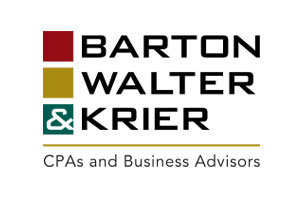Category: Industry Updates
Are You Prepared for the New Lease Standard?
December 7, 2021 | admin
After many delays, the Accounting Standards Codification (ASC) 842 is set to take effect for private companies. What does that mean for you? We’ll break down the basics to make sure you know what to expect and are prepared for the new lease standard. The New Standard Back in 2016, the Financial Accounting Standards Board (FASB) established ASC 842. The new lease accounting standard requires companies under current Generally Accepted Accounting Principles (GAAP) to recognize assets and liabilities for all leases on their balance sheets. This applies to all operating leases with terms of more than 12 months. Previously, only certain leases – such as capital leases – were required to be reported on the balance sheet. Public companies were required to comply with ASC […]
Read MoreTax Bill Provides Relief for Minnesota Businesses and Residents
July 22, 2021 | Barton Walter and Krier
Earlier this month, the Minnesota Legislature passed a tax bill to finish the proposed $52 billion budget and avert a partial state government shutdown. Both legislative chambers passed the bill in a special session that was necessary after lawmakers reached an impasse and failed to complete the job before the end of the fiscal year in June. The bipartisan omnibus bill was approved and signed into law by Governor Tim Walz on July 1, 2021. Read on as we take a closer look at the new tax bill and how it provides much needed relief for Minnesota businesses and residents. Conformity to federal tax law The bill includes conforming to selected federal tax changes enacted by Congress since December 31, 2018. In addition, it solidifies […]
Read MoreHow Sell-Side Advisory Services Can Create Value
July 14, 2021 | Barton Walter and Krier
Selling your company is one of the biggest business decisions you will make as a business owner. You’ve spent years growing your organization and you’re a trusted expert in your field. But when it comes time to plan your exit strategy, you may have more questions than answers. How do you prepare for the sale? Where do you find a buyer? What about business valuation? A sell-side advisor can help guide you through the entire process from defining objectives to closing the deal. Read on as we look at how sell-side advisory services can create the most value for your business. What is a sell-side advisor? A sell-side advisor is a deal consulting professional who represents a company looking to be acquired. Sell-side advisors are […]
Read More

